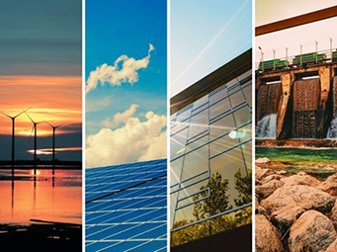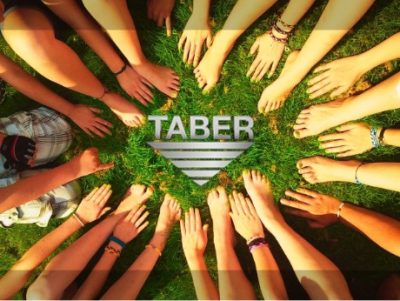Why Engineers Prefer Aluminum Extrusion

Key Takeaways
- Engineers prefer aluminum extrusion for precision and sustainability: Aluminum extrusion processes reduce waste, offer diverse material options, and deliver corrosion-resistant, durable solutions that align with global sustainability goals.
- Taber Extrusions offers tailored expertise: With decades of experience, Taber delivers innovative, high-quality solutions for industries, ensuring reliability and precision in every application.
- Sustainability and innovation set Taber apart: Taber’s environment-friendly practices, advanced manufacturing processes, and ability to handle complex designs make it a trusted partner for engineers seeking excellence in aluminum extrusion.
Why do engineers prefer aluminum extrusion? Its unmatched versatility, cost efficiency, and sustainability make it an indispensable material across industries. Aluminum extrusion has become a cornerstone in modern manufacturing and design, offering the flexibility and performance engineers need to develop innovative, reliable solutions for applications ranging from transportation to renewable energy.
The benefits of aluminum extrusion are vast, from its adaptability to its eco-friendly properties. Engineers prefer aluminum extrusion not only for its ability to meet stringent design requirements but also for its contributions to reducing environmental impact. This blog explores why engineers consistently choose aluminum extrusions, exploring key advantages, applications, and insights across multiple industries.
Reasons Why Engineers Prefer Aluminum Extrusion
Aluminum extrusion provides several compelling advantages, making it the preferred material for engineers:
- Design versatility and precision
Extruded aluminum can be shaped into complex profiles with tight tolerances, enabling engineers to design custom solutions tailored to specific needs. Whether it is lightweight frames for automotive applications or intricate components for aerospace, aluminum extrusion supports creativity without compromising structural integrity.
- Lightweight yet strong
Aluminum alloys offer an exceptional strength-to-weight ratio, a crucial benefit in industries like transportation, aerospace, and defense, where reducing weight improves efficiency and performance. Advanced high-strength steels (AHSS) may have their applications, but aluminum extrusions provide a comparable lightweight alternative with added design flexibility. The Aluminum Extruders Council highlights how this combination of strength and weight is an industry game-changer.
- Aluminum extrusion in sustainability
As industries shift toward greener practices, aluminum extrusion plays a pivotal role in sustainable manufacturing. Aluminum is 100% recyclable without losing its inherent properties, making it a sustainable choice for infrastructure, renewable energy, and automotive sectors. Engineers favor aluminum for its ability to align with long-term environmental goals, as outlined in the Aluminum Extruders Council’s guide on aluminum sustainability.
Aluminum Extrusion Applications Across Industries
The versatility of aluminum extrusions has secured their role in numerous industries, making it clear why engineers prefer aluminum extrusion. Let’s explore some of its key applications:

- Transportation
Automotive aluminum plays a pivotal role in reducing vehicle weight, improving fuel efficiency, and meeting strict emissions standards. From crash management systems to battery enclosures in electric vehicles, extruded aluminum components are becoming essential in modern transportation.
- Aerospace and defense
Lightweight aluminum alloys are critical in aerospace and defense applications, where every gram counts. Aluminum extrusion profiles contribute to robust yet lightweight aircraft, satellites, and military vehicle structures.
- Construction and architecture
In construction, aluminum extrusion provides durable and aesthetically pleasing solutions. Aluminum for infrastructure includes window frames, curtain walls, and structural supports that combine strength and corrosion resistance, ensuring long-term performance.
- Consumer goods and electronics
Manufacturers widely use extruded aluminum in consumer goods due to its sleek appearance, lightweight nature, and excellent thermal conductivity. It’s also a preferred material for components such as heat sinks and enclosures in the electronics industry.
- Renewable energy
In renewable energy, aluminum extrusion is essential for solar panel frames, wind turbine components, and energy-efficient building designs. Engineers appreciate aluminum’s durability and resistance to environmental factors in these demanding applications. Learn more about the role of aluminum in renewable energy here.
Why Engineers Choose Aluminum Extrusion
Engineers prefer aluminum extrusion for its ability to deliver precision, performance, and sustainability. Its advantages include:
- Efficient manufacturing: Extrusion processes are cost-effective, allowing for reduced material waste and streamlined production.
- Wide material options: Aluminum alloys offer diverse mechanical properties, ensuring engineers can select the right material for the job.
- Durability: Aluminum extrusion profiles withstand harsh environments, offering corrosion resistance and longevity.
- Sustainability standards: Using recycled aluminum reduces energy consumption and greenhouse gas emissions, supporting global sustainability goals.
Your Trusted Aluminum Extrusion Partner
When it comes to meeting engineers’ unique needs, Taber Extrusions stands out as a leader in the industry. With decades of expertise, Taber offers comprehensive solutions tailored to the most demanding applications. Taber’s aluminum extrusion capabilities ensure precision, quality, and reliability from transportation to renewable energy.
Why Choose Taber?
- Innovative solutions: Advanced manufacturing processes to meet complex design requirements
- Commitment to sustainability: Adherence to eco-friendly practices and sustainability standards
- Industry expertise: Proven track record serving diverse sectors, including aerospace, defense, and automotive
Engineers trust Taber Extrusions for their commitment to excellence and ability to deliver aluminum extrusion solutions that drive success. Request a quote today to discuss how their aluminum extrusion expertise can support your next project.
About Taber Extrusion
For over four decades, Taber Extrusions has been at the forefront of the aluminum extrusion industry, renowned for its innovative solutions and unwavering commitment to quality. Their extensive capabilities, including the production of complex and wide profiles, set them apart as a leader in the field. Serving diverse sectors such as aerospace, defense, automotive, and renewable energy, Taber consistently delivers precision-engineered products that meet the highest industry standards. Their dedication to sustainability and customer satisfaction underscores their role as a trusted partner in engineering excellence.
Fill out the form below, and discover how Taber Extrusions can elevate your projects today!





































